How to tie up grapes?

Grapes are considered one of the most common fruit crops in the world. Popular varieties can be found not only in the southern Russian regions, but also in the west, north and in the central regions of the country. Each variety has its own characteristics that should be considered during the cultivation process.
Despite the differences in agricultural technology, some of its components are unchanged, for example, the garter of the vine. Heat-loving fruit crops grow rapidly in natural conditions, so a garter is indispensable. For work, special supports are used, they must be strong and reliable enough to cope with powerful shoots and withstand the onslaught of atmospheric precipitation.
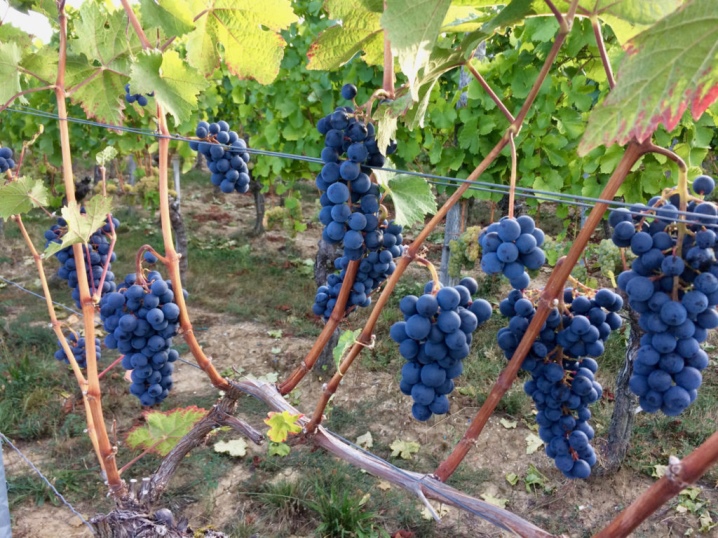
The need for a procedure
According to experienced gardeners, a garter is a must, regardless of the place where the shrubs grow: in the country or in large-scale commercial vineyards.
This procedure performs several functions at once:
-
manipulation is carried out so that the vine does not entangle nearby plants, buildings and other objects;
-
the bandage will help to quickly and conveniently harvest;
-
berries will receive enough sunlight for full ripening and sweetness;
-
easier care, especially pruning broken and deformed shoots;
-
a well-executed garter with the onset of spring leads to the fact that the vine does not stretch, maintaining the necessary shape and length - the shoots grow of the same size, allowing the formation of plants to improve its decorative qualities;
-
the grapes will grow comfortably, and the branches will not intertwine with each other;
-
fixing the vine on the supports provides full ventilation and oxygen exchange, which is necessary to prevent the appearance and development of the fungus;
-
in the thickened and unkempt crown, dangerous insects often live, which attack the plant, eating the fruits.
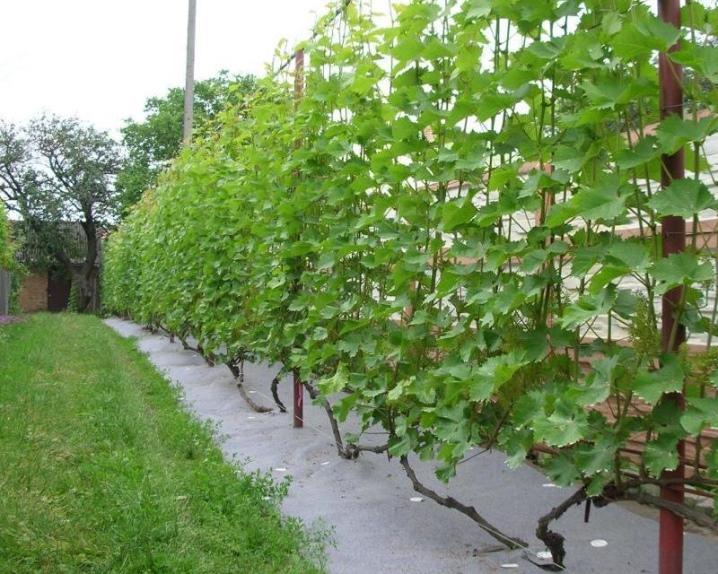
A well-groomed plant looks attractive and neat. Grapes are often planted not only to collect juicy and sweet berries, but also to decorate the local area and create a hedge or arch. To get all the benefits of a fruit crop garter, you need to get the job done on time.
Timing
Optimal deadlines have been set for the work. Tying plants in early spring seems to many inexperienced summer residents to be a costly and complicated procedure, but if you choose the right scheme for performing the work, caring for the grapes will not be difficult. Several methods of garter have been developed, each of which is carried out taking into account the timing of the development of the plant.
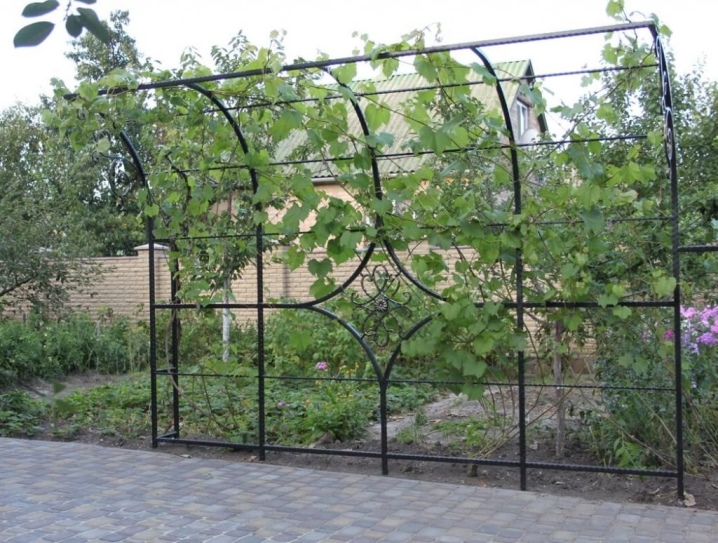
An early green garter is carried out in early spring. You need to have time to complete the work before the process of sap flow begins. The buds on the branches must remain closed, otherwise they may suffer during the garter process, which will negatively affect the fruiting and quality of the crop.
In order for the bunches to grow large, the branches are fixed at an acute angle (from 45 to 60 degrees) or horizontally. Such fixation will have a positive effect not only on the size of the brushes, but also on the taste of the fruit. The berries grow juicy, sweet and aromatic.
If the variety has a high stem or long sleeves, the shoots are placed at an angle of 90 degrees.
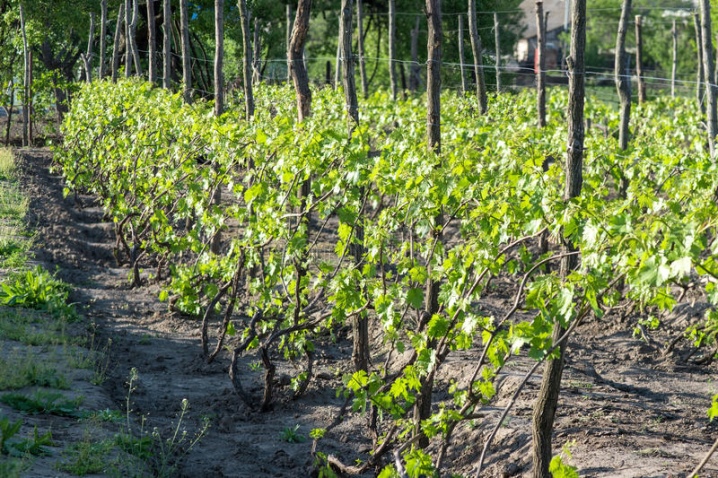
In the process of growing the vine and its lengthening, you need to re-tie the garter. The procedure can be performed only before the start of flowering and the formation of ovaries. Otherwise, the risk of damage to the fruit brushes remains. During one season, at least 4 garter procedures are performed.
And also a green garter is carried out in the summer to create comfortable conditions for plants and protect them from bad weather and precipitation.
Material selection
In order to properly tie up the grapes without harming the plant, you need to prepare not only supports, but also a suitable garter material. For attaching branches to structures, it is advisable to use soft textiles cut into small strips. Thick wire or twine is also suitable. Thin steel wire or fishing line will damage the shoots and should be discarded.
Choosing the wrong garter material can easily injure the plant. And also the process of sap flow is disrupted, because of which the branch will begin to lose nutrients and dry out.
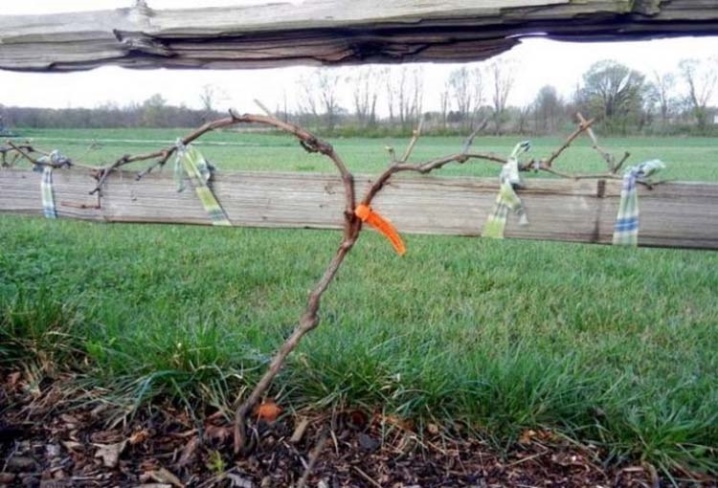
In the process of fixation, the tissue should not be tightly tightened, it should be slightly loose so as not to transfer the shoots as they grow. Tight attachment takes place only when a green garter is performed, since young shoots develop slowly and can break from strong winds. A rigid connection will protect them from possible damage.
The main supporting elements of the grapes, which are placed strictly vertically into the ground, can be made of metal or a suitable type of wood.
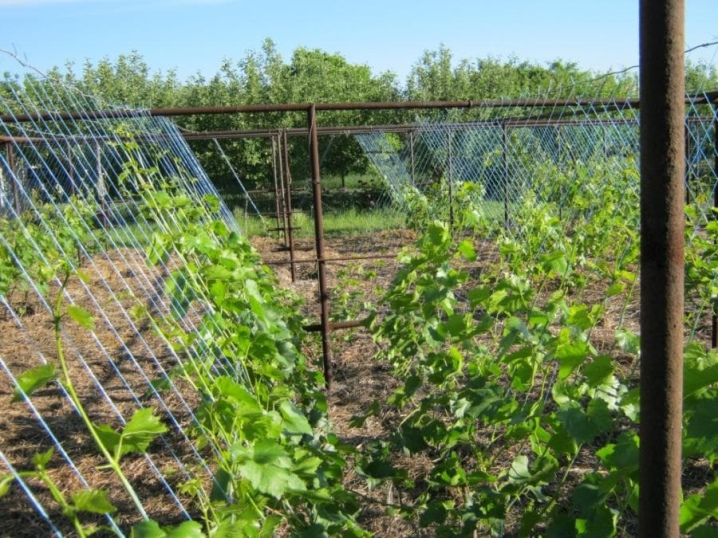
Note: Galvanized metal wire is often used. It is suitable for horizontal bars. In order for the tiers to withstand the weight of the vine, the thickness of the wire should be about 2 millimeters.
The best varieties of trees for making wooden pegs are considered to be mulberry, alder, oak and poplar. It is a sturdy wood that is highly resistant to decay processes. Due to this feature, such supports will last longer than others.
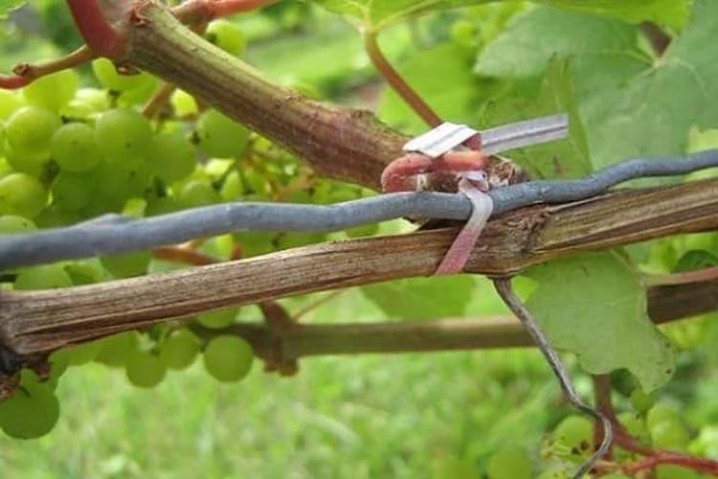
Garter methods
There are two main methods of grape binding - dry and green, each of which has certain characteristics. Taking care of the fruit crop, they use both the first and second options.
Dry
This garter option is chosen when working with a shortened and already matured and lignified vine. In this case, the branches should be attached to the lowest tiers of the trellis. With an excessively high load on the lower part of the support, additional tiers are used higher. The main mass is laid horizontally, and last year's vine, which is necessary for the future trunk, is fixed vertically.
The garter is combined with pruning, getting rid of old, broken and frozen shoots.
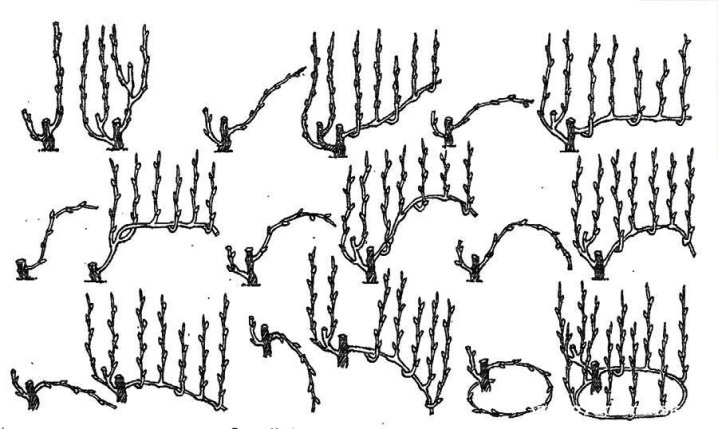
Green
The green garter is started only after the young and still fragile vine grows to 0.5 meters. The main goal of the work is to protect delicate shoots from interweaving and the vagaries of bad weather, including strong and gusty winds. Choosing this method of fixation, the shoots are fixed strictly vertically. The entire plant mass is distributed in such a way that a maximum of 3 branches are collected at the node.
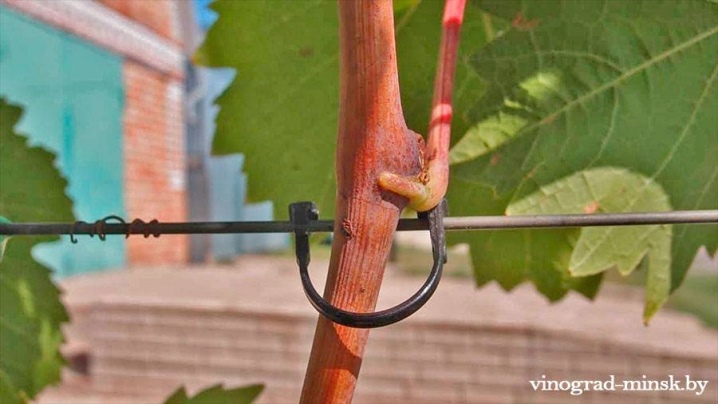
If the above requirements are not met, pollination will be problematic, which will negatively affect the quality and volume of the crop. When performing a garter, first of all, the material used is fixed. First, they are wrapped around the support, and only then they begin to fasten the vine.
This method of fastening will protect the vine from chafing and other possible damage. And also a competent garter will protect the plant from burns that can be obtained from overheating of the metal wire.
The possibility of such damage increases significantly during the hot season.
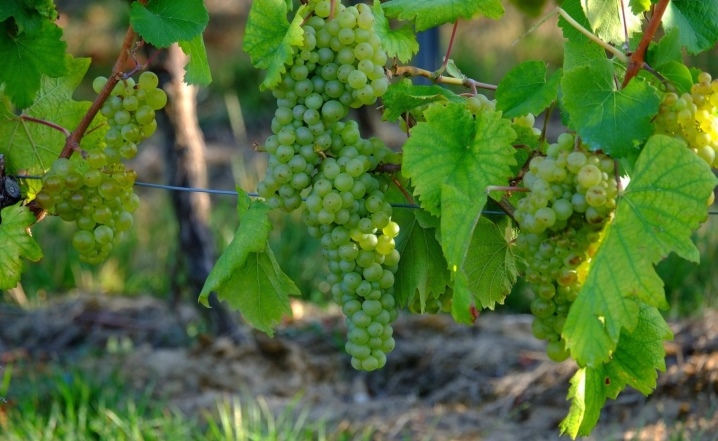
When fan-shaped
To decorate a fruit plant beautifully, they resort to a fan garter. The method of fixing grapes in the form of a fan is actively used by both ordinary summer residents and experienced gardeners. This method is widespread in different regions of the country.This molding option is ideal for varieties that, with the onset of winter, are laid in trenches and covered.
When choosing this technology, the sleeves, which are formed from the base, will grow on different sides at the same speed. All last year's shoots are fixed in a strict horizontal position. The young vine is carefully lifted and fixed vertically. The result is an attractive shrub with fan-shaped branches. Such a plant will become an expressive decoration for a garden or any plot of land.
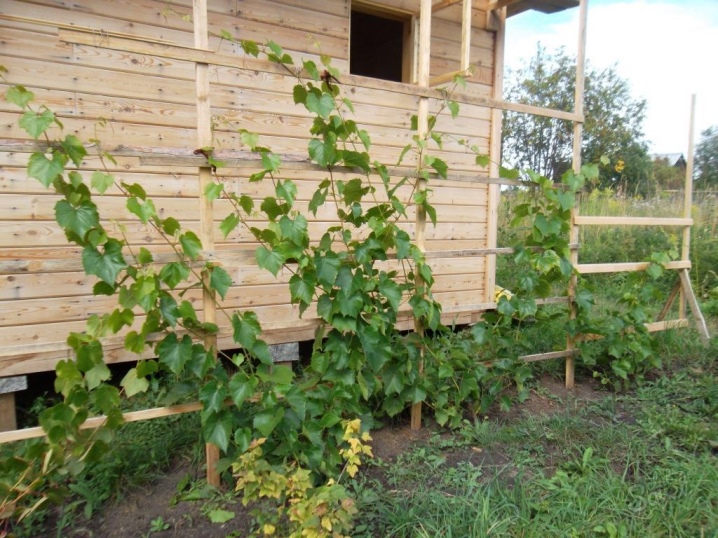
How to tie up bushes, taking into account age?
When performing a garter of grapes, not only the season and the period of development of the plant are taken into account, but also its age.
Young
Shrub branches are attached to small posts made of wood in the first year of life. If necessary, you can place a compact trellis made of mesh on the sites. It must be strong and thick enough. Fastening is carried out using a soft and dense material that will not harm the soft and not yet stiff vine.
And you can also opt for a grid with large cells. In this case, it must be screwed to a wooden or metal support. The flexible branches will independently trail upward as they grow and form.
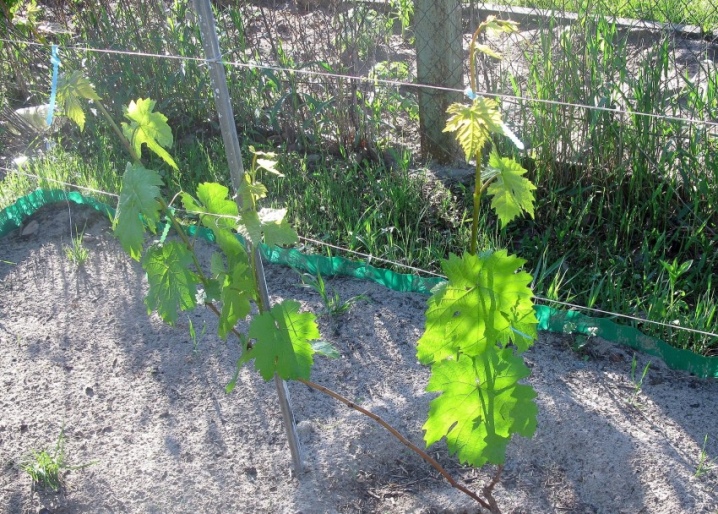
Adults
When caring for adult shrubs, you need to pay special attention to the garter, and do the job correctly in order to ultimately harvest a tasty and rich harvest. Long and massive sleeves are fixed to a strong and stable trellis, placing them at an acute angle. The lowest bar is used to secure the replacement knots.
Around the thick wire, those shoots that will bear fruit in the current season are carefully braided. For fastening them, strips of soft but durable fabric are suitable. The twine is also suitable for tying them to the constructed trellis.
The main difference between the garter of adult fruit plants and young shrubs is the arrangement of the sleeves at an angle of 90 degrees. Each action must be performed very carefully. Even the slightest violation can break fragile vines.
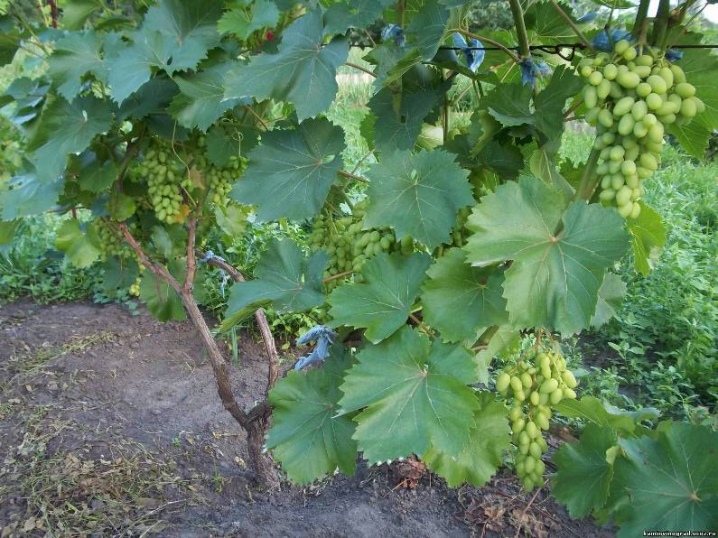
Possible mistakes
When performing the fastening procedure, you need to consider the following basic rules:
-
new branches are fixed in the area of 3 or 4 tiers;
-
a young vine is attached in the second row, placing it at a slight angle;
-
the last tiers are for skeletal branches.
These rules are widespread and universal, while the process of carrying out the work may differ, taking into account the characteristics of the variety and other parameters.
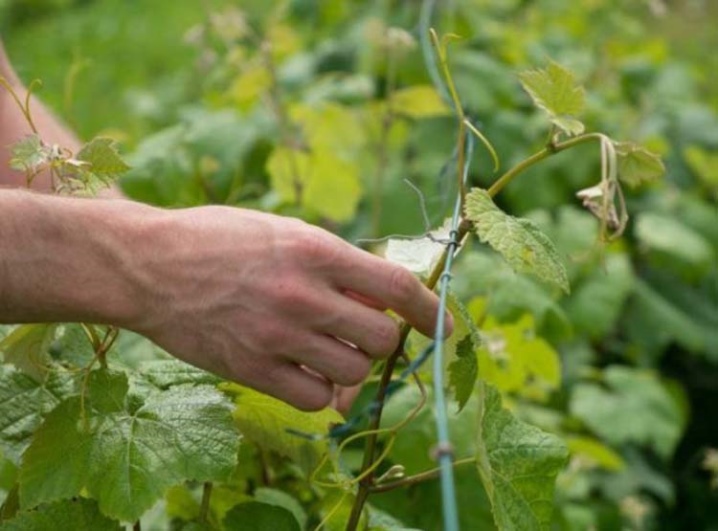
When tying grapes with a "eight", the shoots are fastened separately, and not in groups. The vine that forms the crop is fixed horizontally, and the arrows are placed at an angle.
When carrying out a garter of grapes, many summer residents, especially those who do not have proper experience in caring for a fruit plant, often make mistakes. Some consider this procedure difficult to perform and, fearing harm to the grapes, refuse it altogether. However, it is enough only a few times to correctly carry the garter to make sure that this procedure is simple.
One of the most common mistakes is using inappropriate garters and supports, which often leads to the death of the vine. If it is not possible to prepare the necessary material, it can be purchased in specialized stores. The assortment offers a large selection of clamps, hooks, wires and other holders.
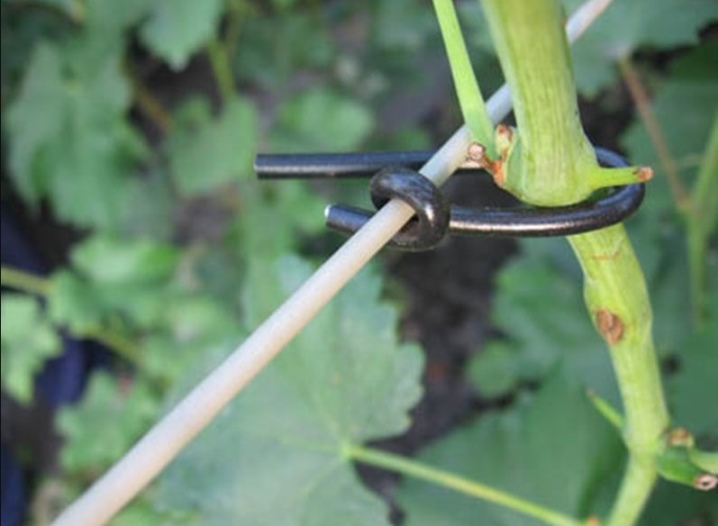
To assemble the structure, some summer residents use a furniture stapler or glue gun. Even when growing undersized varieties, the support structure must be reliable and stable.
The next common mistake is improper vine placement. Beginners often tie the shoots upright. This leads to a decrease in the weight of the hands. Another violation is the fixation of the vine at the top. After a certain time, the shoots will begin to grow in different directions, thickening the crown. All internodes growing nearby dry up.
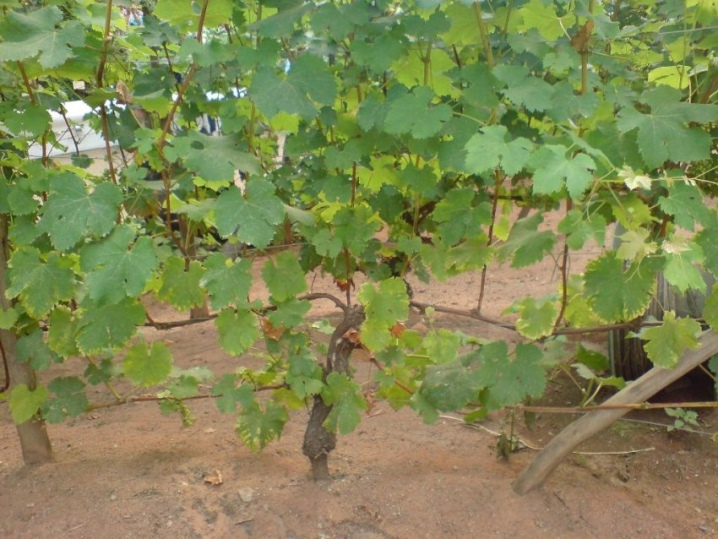
Also, you should not bend the vine too much. When fixing long shoots, many gardeners often form ovals or rings from it, which negatively affects the health and productivity of the grapes. Incorrect placement obstructs the pathways for the supply of micronutrients to the shoots. As a result, the plant begins to starve and becomes unable to form a rich and succulent crop.
Taking into account the above violations, you can achieve maximum yield and collect a large number of tasty and healthy berries every season. The mistakes described above are made not only by beginners, but also by experienced gardeners, so familiarization with them is mandatory for everyone.
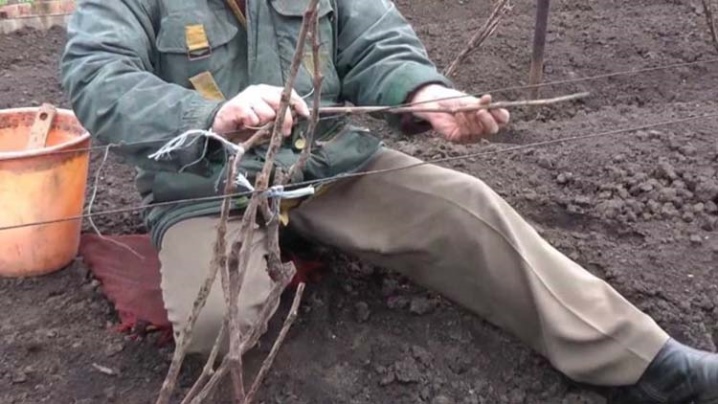
Detailed information on the methods of tying grapes can be found in the following video.













The comment was sent successfully.